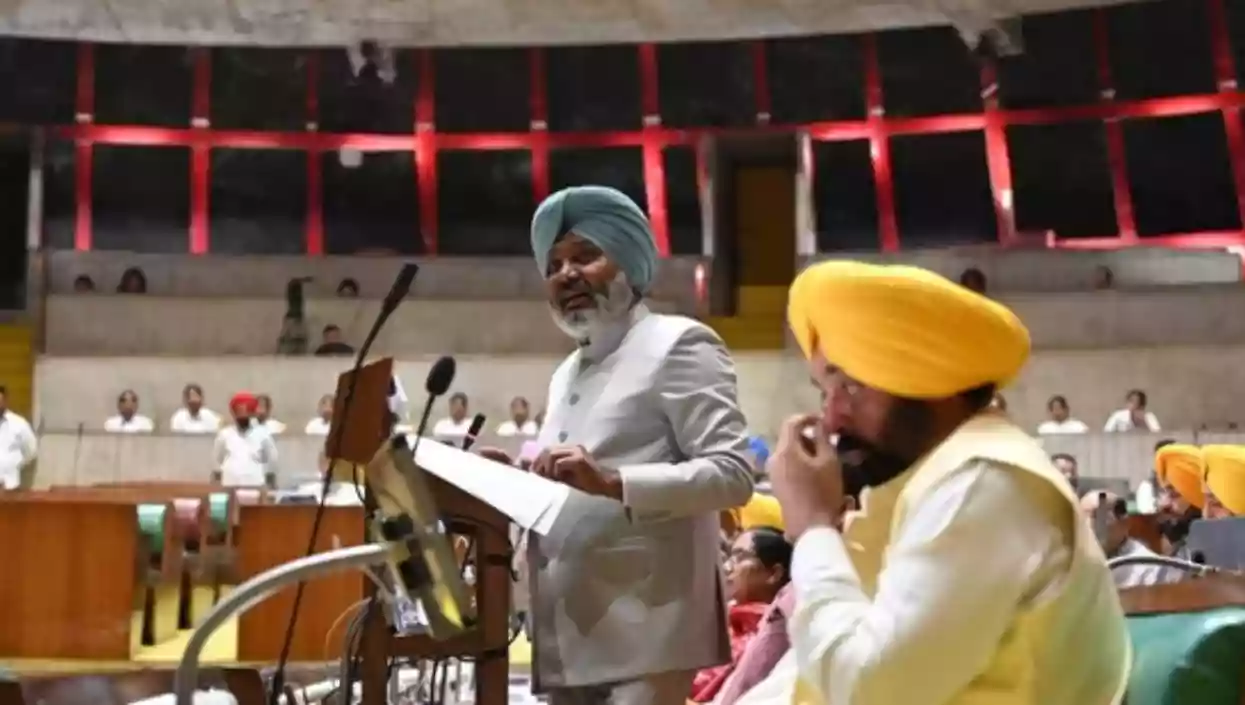Protests erupt outside Kasba Police station as 3 arrested in alleged Kolkata college gang rape
.gif)
.gif)

Punjab Finance Minister Harpal Singh Cheema presented the state budget for 2025-26 on Wednesday, outlining a total expenditure of ₹2.36 lakh crore. This marks the Aam Aadmi Party government’s third budget since coming to power in 2022. With a focus on tackling Punjab’s persistent drug problem, the state has announced its first-ever ‘drug census’ with a ₹150 crore allocation. This initiative aims to collect household-level data to analyze drug prevalence and improve de-addiction efforts.
Cheema emphasized the state's economic progress, reporting a 9% growth in the current fiscal year, with Punjab’s Gross State Domestic Product (GSDP) reaching ₹8.09 lakh crore. The economy is projected to expand further by 10% in 2025-26, taking the GSDP to ₹8.91 lakh crore. Meanwhile, the state's effective revenue deficit and fiscal deficit have been estimated at 2.51% and 3.84%, respectively.
The Punjab government has also allocated ₹500 crore to support farmers, cooperatives, and gram panchayats in managing crop residue. This measure aims to curb stubble burning, a major environmental concern during the paddy harvest season. Additionally, a new scheme in Bathinda, Kapurthala, and Gurdaspur will incentivize farmers to switch from paddy to Kharif maize, with subsidies of ₹17,500 per hectare to promote ethanol production.
To strengthen border security and combat drug smuggling, the government plans to deploy 5,000 home guards alongside the Border Security Force (BSF). Cheema highlighted that cross-border drug trafficking remains a major issue and called on the Centre to take responsibility for controlling smuggling along Punjab’s international border. In a further bid to boost security, ₹233 crore has been earmarked for modernizing police infrastructure, while ₹100 crore will go towards upgrading jail facilities.
A key initiative in the budget is the expansion of emergency response services, with ₹125 crore allocated to increasing the number of Emergency Response Vehicles (ERVs). The current fleet of 258 ERVs will be expanded with 758 four-wheelers and 916 two-wheelers, significantly reducing response times for distress calls from 30 minutes to 8 minutes—the lowest in the country. A new state-of-the-art headquarters for the ‘Dial 112’ emergency response team will also be built in Mohali, with ₹53 crore set aside for this project.
Other major announcements include a universal health insurance scheme covering all 65 lakh families in Punjab, with an annual coverage limit of ₹10 lakh. Additionally, ₹14,524 crore has been allocated for agriculture and allied sectors, ₹300 crore for the Punjab Municipal Services Improvement Project (PMSIP), and ₹5,983 crore for urban development, including the installation of 2.5 lakh streetlights across the state under the ‘Mukh Mantri Street Light Yojana.’ The government has also set a GST collection target of ₹27,650 crore for the next fiscal year.